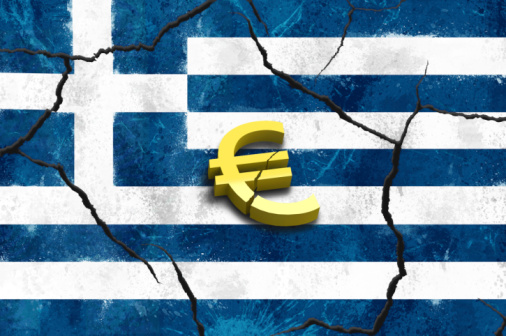Banking, finance, and taxes
NBG Trifecta - Earnings, Management Change, Tsipras Meeting in Germany
Published:
National Bank of Greece S.A. (NYSE: NBG) has another new management team. Investors are deciding whether a new team being in place or whether additional financing ahead is more important. NBG may not matter much internationally any longer, but it is a top lender in Greece — and now it will have a new chairman and a new chief executive officer. Investors are also getting to analyze earnings, and deal with a Tsipras and Merkel meeting in Germany.
George Zanias will be replaced by former minister Louka Katseli as chairman. Leonidas Fragiadakis is replacing Alexandros Tourkolias as chief executive officer. Also at NBG, Mr. Stefanos Vavalidis, an independent non-executive director, also submitted his resignation.
Getting a new executive team may sound like a game-changing event, but this sometimes occurs in Greece after elections. The Syriza-led government has been in power for right at two months now. A smaller rival bank is Eurobank Ergasias announced board changes in February.
The news from Monday also coincided with meetings between Greek Prime Minister Alexis Tsipras and German Chancellor Angela Merkel. The market was not expecting any rapid resolution in Greece — nor that Tsipras would provide any significant goals for the country to resolve a divide between the nation and European bank creditors.
National Bank of Greece also reported on Monday that it lost 1.11 billion euro in the fourth quarter. This was versus a 30 million gain in the third quarter, but the blame was on one-time charges and an increase in loan loss provisions (see net numbers below)
NBG actually posted a profit for the full year 2014 of 66 million euro. Unfortunately, that profit was north of 800 million euro in 2013. Still, NBG claims to have a 15 billion euro liquidity buffer as of mid-March — also by mid-March, NBG’s total Eurosystem exposure reached 23 billion euro, of which 13.3 billion were drawn from the ELA. The bank’s earnings release said:
Despite the increase of the Eurosystem exposure, NBG retains significant buffer of ELA eligible collateral of about 15 billion euro (cash value). As such, the bank retains a solid liquidity buffer allowing it to navigate through this challenging period and continue to actively support the Greek economy.
Other key issues investors may care about are as follows:
It was just last week that a report from Piraeus Bank has forecast that NBG would lose 933 million euro in its fourth quarter. Also last week, S&O announced that it was keeping the ‘CCC+’ long-term counterparty credit ratings on NBG and 3 other large Greek banks.
NBG’s ADRSs were up over 5% at $1.41 in late afternoon trading in New York on Monday. The 52-week range is $0.98 to $5.79. While it is good to see a gain here, it seems unlikely, at least with what we have seen and read so far, that any major Wall Street analysts are going to suddenly change their tune massively after having been burned handily by upgrading NBG shares or making any bold lines in the sand.
Let’s face it: If your money is just sitting in a checking account, you’re losing value every single day. With most checking accounts offering little to no interest, the cash you worked so hard to save is gradually being eroded by inflation.
However, by moving that money into a high-yield savings account, you can put your cash to work, growing steadily with little to no effort on your part. In just a few clicks, you can set up a high-yield savings account and start earning interest immediately.
There are plenty of reputable banks and online platforms that offer competitive rates, and many of them come with zero fees and no minimum balance requirements. Click here to see if you’re earning the best possible rate on your money!
Thank you for reading! Have some feedback for us?
Contact the 24/7 Wall St. editorial team.